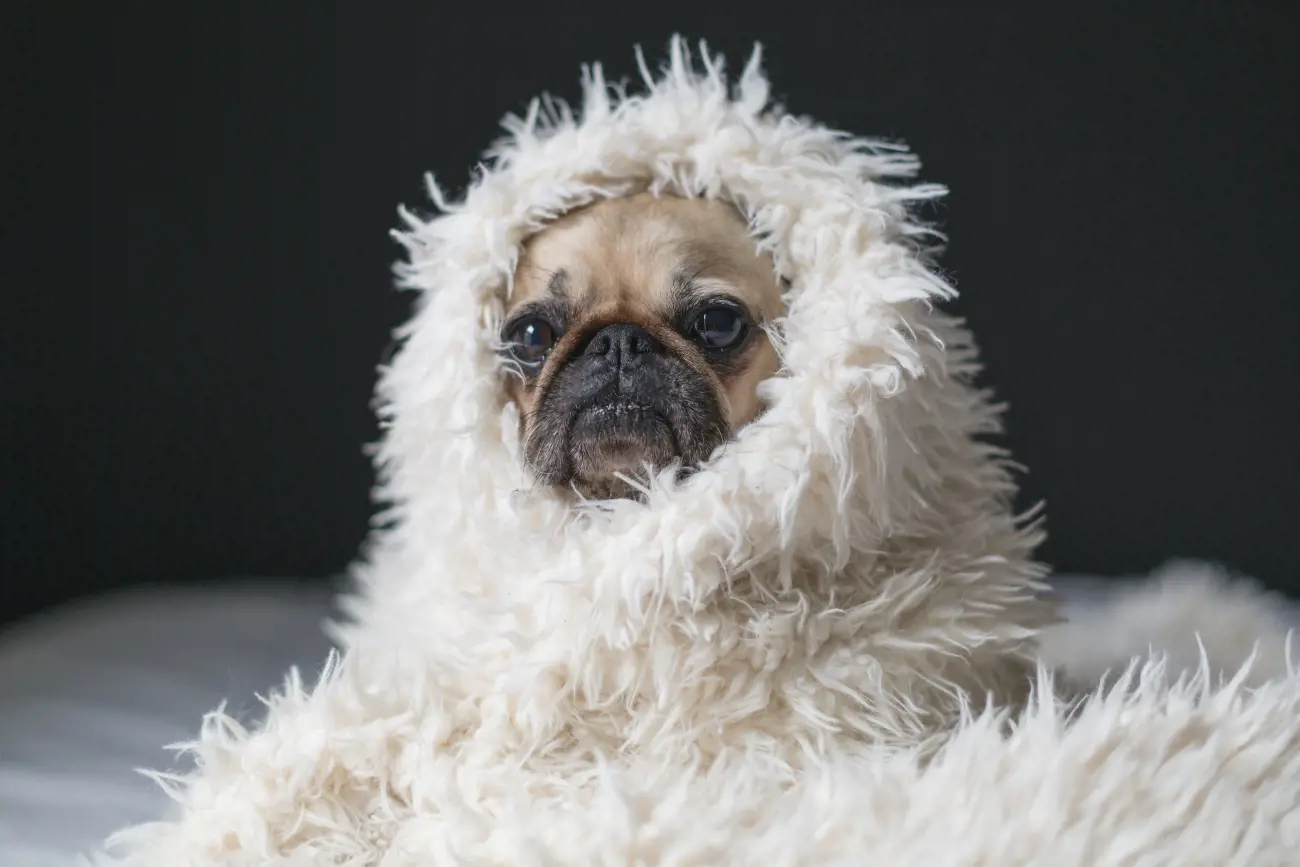How to keep your dog safe and warm in cold weather
23rd November, 2023

When the temperature drops, it’s important to take extra care of our four-legged friends. Here are our top tips to keep our puppy pals safe and warm this winter.
Snow and extreme cold
When the weather is extremely cold (close to or below freezing), pets are at risk of frostbite or hypothermia. Smaller breeds are at more risk, symptoms include shivering and lethargy, or loss of consciousness when more extreme.
Limit walks during extreme weather. Invest in a warm dog jacket or jumper. Make sure to monitor your pet when outdoors at all times.
Grit and road salt
Used to help de-ice roads in winter, grit or road salt can be dangerous to our pets. It can stick to their paws and fur, and when licked off and then ingested it can be toxic.
It can also cause damage to the paws. Symptoms of ingestion include vomiting, lethargy and seizures.
Make sure to wipe your pets’ paws and brush off their fur when you come home from a walk that involves roads that have been gritted
Anti-freeze
● Anti-freeze is a liquid that is used in cars to stop the water from freezing. It contains a substance that is highly toxic to cats and dogs called ethylene glycol. Even a small amount can cause severe symptoms.
● Our pets may lick up spillages of this substance on driveways or in garages. Symptoms include vomiting, incoordination, excessive thirst, and seizures.
Winter Walkies
If its snowing, keep your dog on a lead. There may be deep patches or holes, or the snow may cover areas that aren’t safe.
Don’t let your dog walk on frozen ponds. The ice may not be thick enough to take their weight.
If your dog does fall through the ice never be tempted to go in after them. If possible, encourage them to swim back to you and call the emergency services.
Your own safety is important too. Make sure that you are dressed appropriately for the weather with a suitable coat and shoes. Make sure you're as visible as your dog is.
Regularly check your pets leads, collars and harness. Make sure they’re all functioning safely and won’t get damaged by winter weather, as wet weather can cause metal clips to rust.
It can be trickier to do up lead clips and carabiners and attach them to collars and harnesses when it's cold, so do this indoors if you can.
Rat and mouse poison
Rats and mice look for warmer places to stay in colder months and so more people tend to put down poisons in winter.
These poisons are designed to be attractive to rodents, but may smell and taste good to your dogs too.
There are many different types of rat and mouse poisons, but if you use them, make sure they are put in places where your dog can’t reach them.
Always contact your vet immediately if you are concerned that they may have eaten any poisons.
Source: Jennifer Macindoe BVMS MRCVS for Joii
Helpful Pages
Recent Posts
Pet Insurance Quote
- 98% claims paid *
- Claims paid directly to vets
- 24/7 vet video consultations
- Interest free monthly payments




